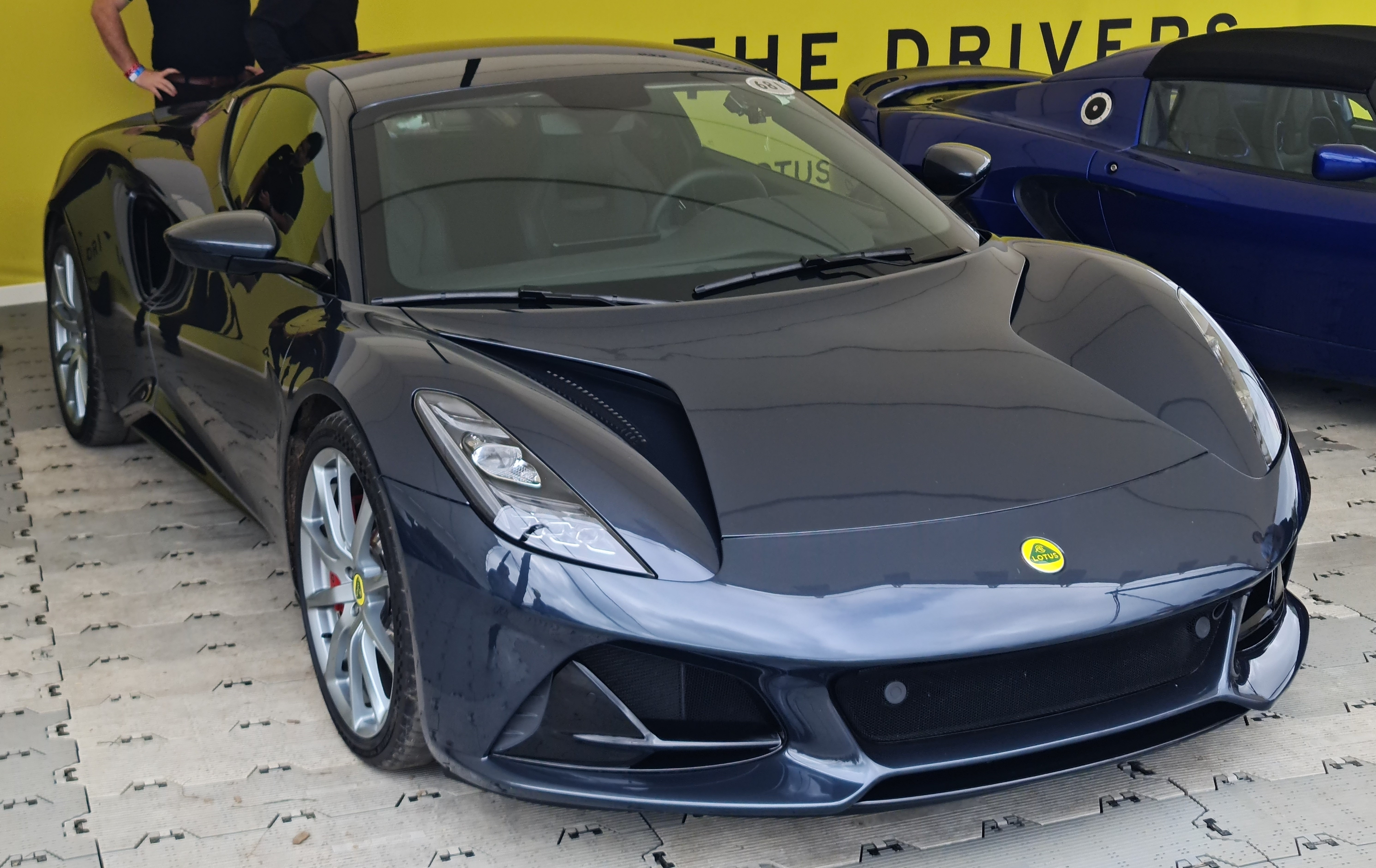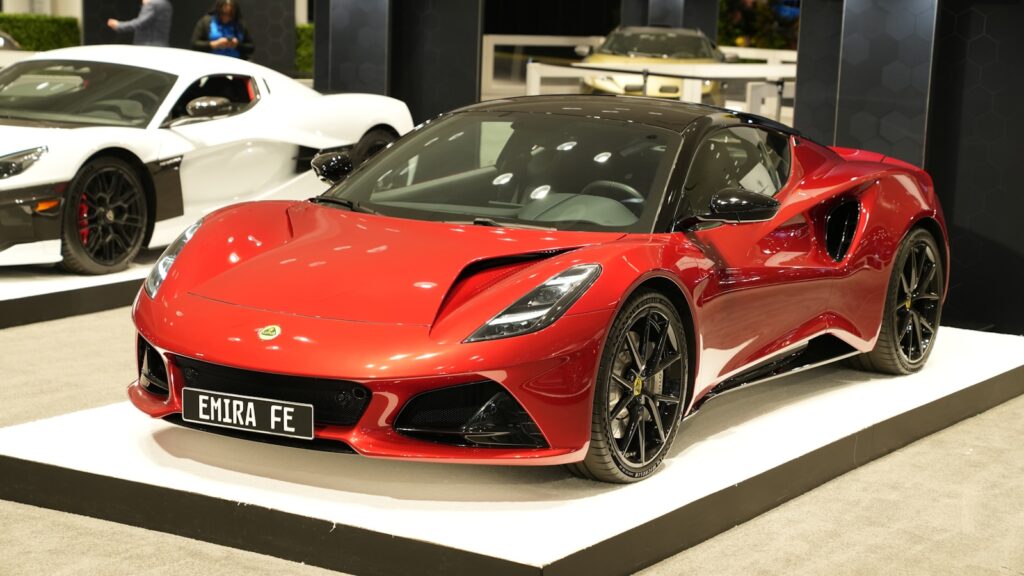Lotus enthusiasts in the United States are eagerly anticipating the arrival of the Emira First Edition, a British sports car renowned for its performance and style. However, this excitement is currently overshadowed by a critical challenge: the Emira has not yet secured emissions certification from the California Air Resources Board (CARB). As a result, hundreds of units remain in limbo at dealerships nationwide, leaving hundreds of thousands of units in limbo at dealer lots around the whole country, causing significant frustration among potential buyers.
Emira’s launch was postponed.
Announced back in 2021, the Emira’s launch has been highly anticipated. Yet, the delay in certification has become a point of contention for the brand, which has already faced years of supply-related constraints. A Lotus spokesperson has indicated that software updates to the Emira’s powertrain have been made to meet CARB standards, and the process is complete. Now, it’s a waiting game for the final approval.

Detailed conditions about Emira.
The Emira’s six-cylinder variant is powered by a Toyota 2GR-FE 3.5-liter V6 engine with an Edelbrock 1740 supercharger, delivering 400 horsepower and 310 pound-feet of torque. Interestingly, this engine is less powerful than the Evora GT’s 416-hp unit, which used the same Toyota-sourced engine. The Emira’s rev limit is set to 6,800 rpm to prevent valve float during hard driving, suggesting that achieving CARB certification for an engine previously approved should be feasible, yet it remains a hurdle.
Lotus also plans to offer a four-cylinder Emira in the U.S., equipped with a Mercedes-AMG-sourced turbocharged 2.0-liter engine, producing 360 hp and 317 lb-ft of torque. Both engine variants are available for configuration on Lotus’s American website, but the start of sales for the four-cylinder model remains uncertain, as it may also be subject to CARB regulations, adding another layer of complexity to the launch.

Lotus fans showed dissatisfaction.
The situation has sparked frustration among Lotus fans, some of whom placed reservations as early as 2021. The Lotus Talk forum has become a hotbed for discussions, with members sharing images of ‘Sold’ cars awaiting certification. A search on Autotrader reveals 186 listings in the U.S., with prices ranging from $94,062 to $109,150, highlighting the widespread anticipation and impatience among enthusiasts.
The CARB certification process is a critical step for Lotus, as fourteen states, including New York, New Jersey, and Maryland, adhere to CARB’s emissions rules. Selling the Emira in states regulated by the Environmental Protection Agency (EPA) alone is not an option, as buyers could potentially resell the cars in CARB-regulated areas, where they wouldn’t meet local emissions standards, complicating the sales strategy.
The delay has led to speculation and a quest for updates, with forum members discussing the frequency of CARB’s updates and sharing insights into the regulatory process. Some have even considered reaching out to state representatives for information, though it’s likely that official channels will not provide specific details until the certification is finalized.
The Lotus community remains in a state of anticipation as they await the resolution of the certification process for the Emira. While the brand has demonstrated a strong commitment to addressing the issue, the timeline for approval remains unclear. This uncertainty has left many prospective owners eager to drive their long-awaited sports cars, fostering a sense of hope that the situation will be resolved promptly, yet patience is wearing thin.
The introduction of the Lotus Emira to the U.S. market highlights the intricate challenges faced by automotive manufacturers in adhering to stringent emissions standards. As the industry grapples with evolving regulatory requirements, the Emira’s development underscores the critical importance of compliance in today’s eco-conscious landscape. This process not only reflects a testament to the complexities of modern car manufacturing but also signifies a broader shift towards sustainable practices within the automotive sector, marking a pivotal moment for the industry.
Related posts:
Lotus Can’t Sell Emiras Because It Still Hasn’t Passed California Emissions
USA/Canada Delivery Thread
USA September Builds – Late 2023 Deliveries?




